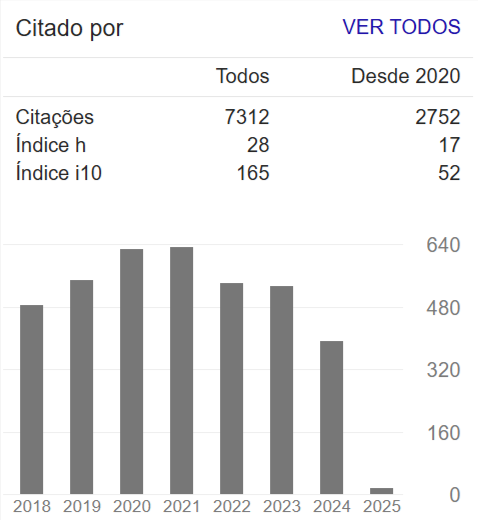Environmental microbiology: bacteriological monitoring of water from an artesian well located at the “Bagaceira site” in Areia-PB
Abstract
This work aimed to analyze the microbiological water quality of an artesian well located in the “bagaceira site” in the rural area of the city of Areia-PB, and which is used as a source of supply to supply the water crisis in several surrounding cities. The study was developed with water samples collected in an artesian well located at the bagaceira site in Areia-PB. Water samples for microbiological analysis were collected directly from the artesian well in wide-mouth glass bottles (500 ml) protected with laminated paper, previously autoclaved at 121 oC for 30 minutes, and sent to the Laboratory of the Vocational Training Center of the Albano Franco Institute of Leather and Footwear Technology (CTCC) in Campina Grande. The samples were stored at 4 to 8 oC for a maximum of four hours until sowing. The parameters analyzed were: total coliforms, thermotolerant coliforms, Escherichia coli and heterotrophic bacteria. The microbiological parameters of the waters were determined following the methodologies of CETESB. Based on the potability criterion established by the Ministry of Health Consolidation Ordinance No. 5/2017, it was observed that the analyzed samples showed total and thermotolerant coliforms, heterotrophic bacteria and E. coli totally outside the limits established by the current ordinance. It is concluded that water is unfit for human consumption.

















